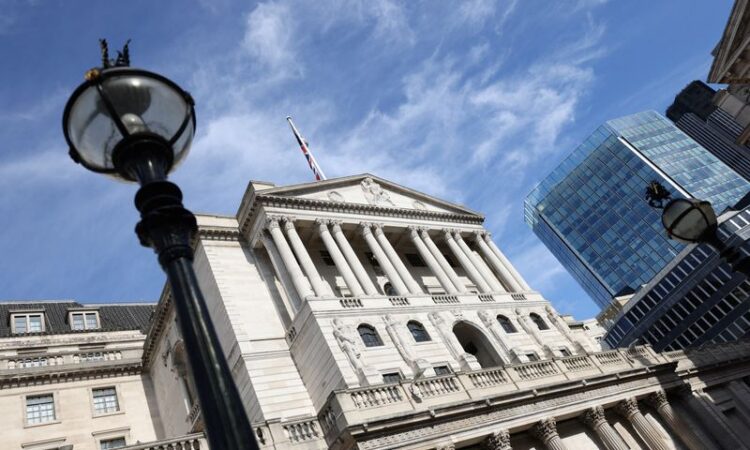
(Reuters) -Bank of England policymaker Megan Greene said interest rate cuts in Britain should remain “a way off” because of the persistence of inflation pressure, which is still more of a threat than in the United States.
Greene said that markets were wrong to expect that the British central bank would cut rates earlier and by more than the Federal Reserve this year, arguing that a later start to policy easing would be better.
“In my view, rate cuts in the UK should still be a way off as well,” Greene wrote in a column published in the Financial Times on Thursday.
Speaking later in the day at a conference in Greece, Greene said Britain was emerging from last year’s shallow recession and that the labour market had been “incredibly strong”.
“The only thing worse than hiking rates and causing a recession is hiking rates, cutting them, and then having to hike them much further in the end,” she said.
Greene’s remarks contrasted with those made recently by BoE Governor Andrew Bailey, who has talked openly about the prospect of rate cuts this year, describing expectations for this as “not unreasonable”.
Jonathan Haskel, one of the Monetary Policy Committee’s most hawkish members, has said that rate cuts should be “a long way off.”
Greene voted in late 2023 with Haskel and another MPC member, Catherine Mann, to raise rates above their 5.25% peak, but since February has sided with the majority on the MPC to keep rates on hold.
The next policy decision by the MPC is due on May 9.
“Following surprisingly strong U.S. March CPI inflation, markets now expect the Bank of England will cut rates earlier and by more than the Federal Reserve this year,” Greene said in her FT article.
“The markets are moving rate cut bets in the wrong direction,” Greene, a U.S. economist who joined the MPC last July, added.
Greene said the persistence of inflation is a greater threat for Britain than the U.S.
Money markets expect around 48 basis points of interest rate cuts by the BoE this year, according to LSEG data.
That is more than the 44 bps of U.S. rate cuts priced in by investors, who pared bets on the Fed loosening policy after hotter-than-expected U.S. inflation data on Wednesday.
Greene said that the difference in labour supply between Britain and the United States was also stark and British services inflation remains much higher.
“Overall labour market participation in the UK has not recovered to the pre-pandemic trend. Participation in the U.S., on the other hand, has exceeded the pre-COVID trend.”
British annual consumer price inflation slowed in February to 3.4% and the BoE forecasts it will fall below the its 2% target in the April-June period before rising slightly again.
(Reporting by Mrinmay Dey in Bengaluru; additional reporting by David Milliken and Andy Bruce; Editing by Kim Coghill, Shri Navaratnam, Miral Fahmy and Andrea Ricci)





